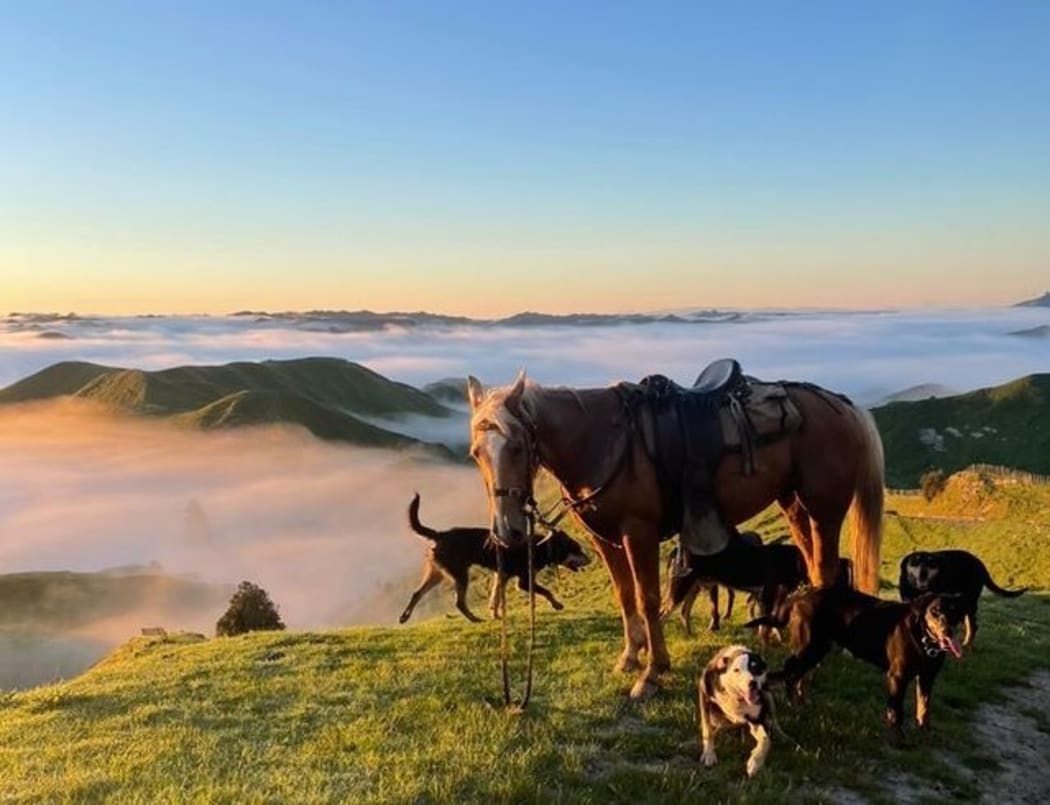
Photo: Harry Newman
It's been a bit of a slow start for the early green kiwifruit harvest in Bay of Plenty with warm nights and mornings and some Southland dairy farmers are drying their herds off well over a month early because of the extreme dry.
The stock agent we spoke to in Northland says he reached for his jacket for the first time on Friday morning but daytime temperatures have been between 24 and 26 degrees all week. The market for weaner cattle is holding nicely. Dairy herds sold very well, very early. Two year old heifers are usually on the market now but they've already sold out. People wanting cows took advantage of the high payout and got in early - herds averaged between $1800 and $1900 per animal with the best herds averaging up to $2200. Heifers went for $1600 - $1700 each.
The vegetable growing district of Pukekohe had 18 millimetres of helpful rain midweek. Some growers are gradually increasing their brassica plantings while others are apprehensive about their shed-stored onions because of reduced exports, especially to Europe. With home gardeners being encouraged to grow their own vegetables like never before, a mild winter could result in an abundance of fresh food.
This week south Waikato had 15 to 19 millimetres of rain and farms are starting to green up and get a bit of grass growing - but not before time. Farmers are drying off their lighter cows as they head towards the end of the season. Milk production is down season-to-date in the district by 5 to 8 percent. It's still difficult to get space at the works for cull cows.
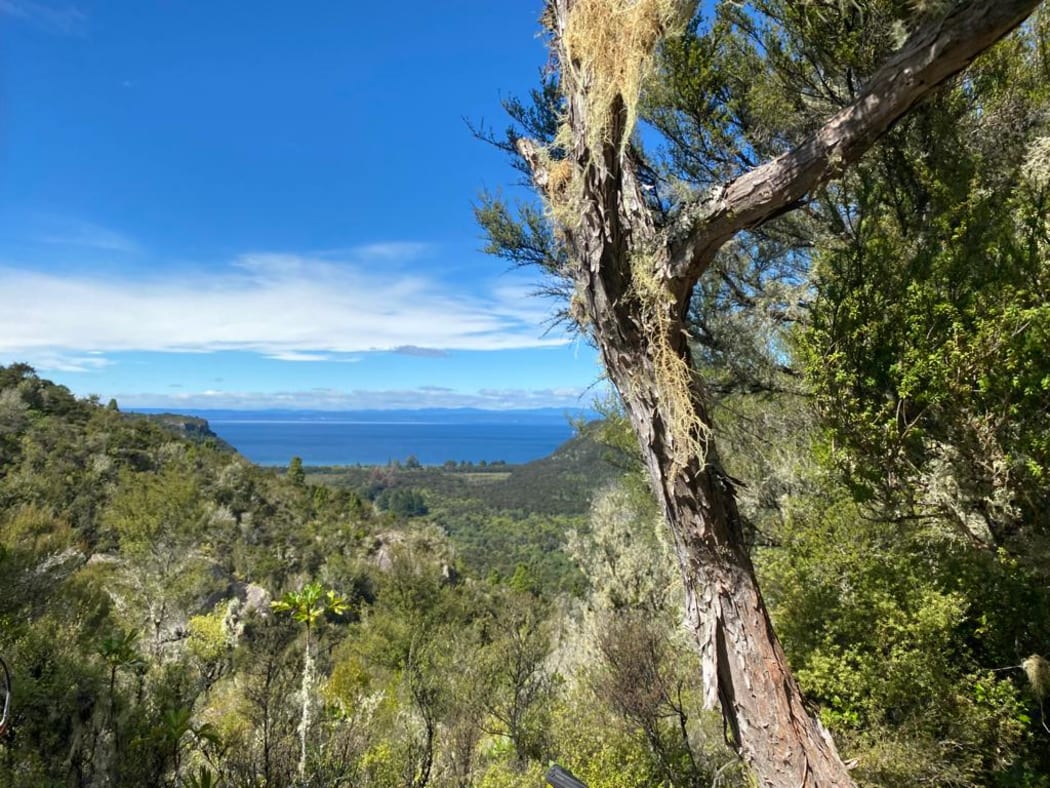
Lake Taupō Photo: RNZ/Sally Round
In Bay of Plenty it's been a bit of a slow start for the early green kiwifruit harvest - with warm nights and mornings, fruit is still sizing up and maturing. It's up to two weeks behind where it would normally be. The 'early-start' gold harvest has finished and the main gold crop will start coming off in earnest in a week's time. There are incentives for growers to harvest their fruit earlier than usual - as long as it meets sugar and taste requirements. The industry doesn't want growers leaving it on the vine until later in the season and then it all arriving at the packhouse at once. Very late season avocados are coming onto the domestic market - more fruit was held on trees this year because of an oversupply. It's great for the New Zealand customer because avocados have a high oil content at this time of year and are delicious, but not so good for the grower, especially as trees start to drop their mature fruit about now and once it hits the ground it can't be sold.
Piopio in King Country had a cracker of a morning on Friday with blue skies, three degrees and heavy dews. The district had a pleasing 10 to 15mm of rain earlier in the week and grass is growing very nicely. We're told most farmers are being pretty understanding about not being able to get their animals to the works because of Covid-related hold-ups. With three short weeks coming that reduces capacity again. People who can't have their lambs killed are putting them into the store market and lamb finishers are buying slightly heavier lambs than usual - but that's what's available. On most farms the ram is out.
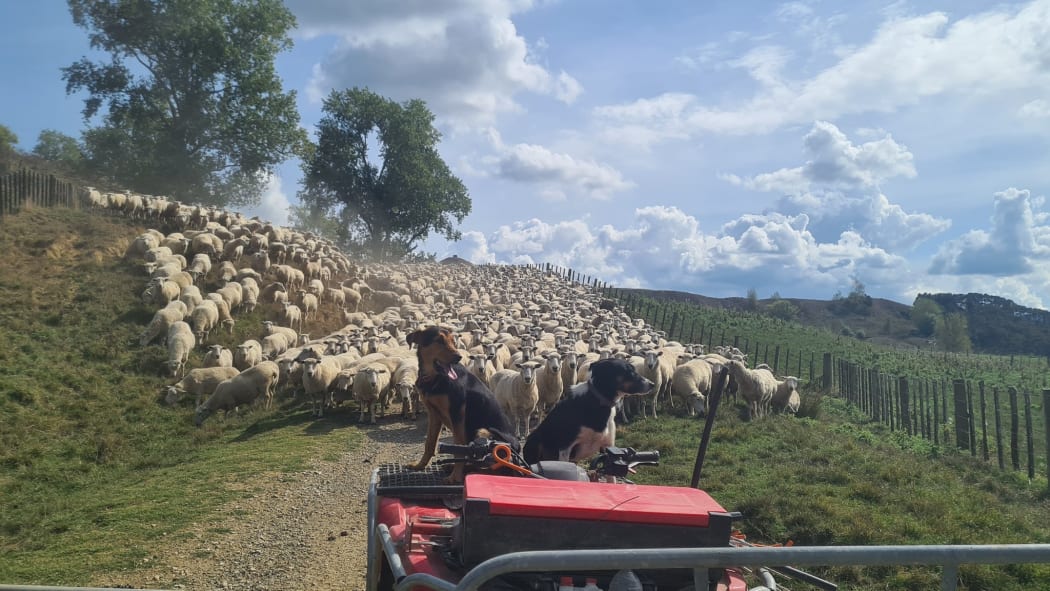
Photo: Anna Nelson
The Gisborne region's had a good drying week with sun and wind. A lot of roads are still closed after the recent storm and it's a bit niggly getting stock trucks in. Access around farms is also tricky and we're told a lot of farmers had forgotten where their saddle was and have had to dust it off. Our contact says one of his mates in the hill country near Tolaga Bay lost 50 percent of the grass on his farm because of slips and a carpet of dirt. And another friend who farms south of Gisborne had the power restored on Thursday this week after 13 days without it - he did use a generator when he had to. The Gisborne flats are coming right too after all the rain and kiwifruit and apples are being picked as fast as possible.
Pastoral farmers in Hawke's Bay are having an incredible autumn - in fact the ag consultant we called says he's been working with some of his clients for 30 years and they're saying they've not seen an autumn like it. Unlike further north, Hawke's Bay didn't receive excessive rain recently - but enough that the countryside now looks very lush. The consultant says after three terrible autumns in a row people had lost confidence and he's pleased to see it starting to re-build. He says farmers now have the option of feeding their existing stock better or even buying in additional animals. He says often at this time of year farmers use nitrogen fertiliser to boost pasture covers - but now nature has done it for them. Prices for fert have shot up so the average farm might be able to save $40,000.
Manawatū and Rangitikei have had enough decent moisture to keep things ticking along. Contract prices for venison are clawing their way back - it's been a tough couple of years for deer farmers.
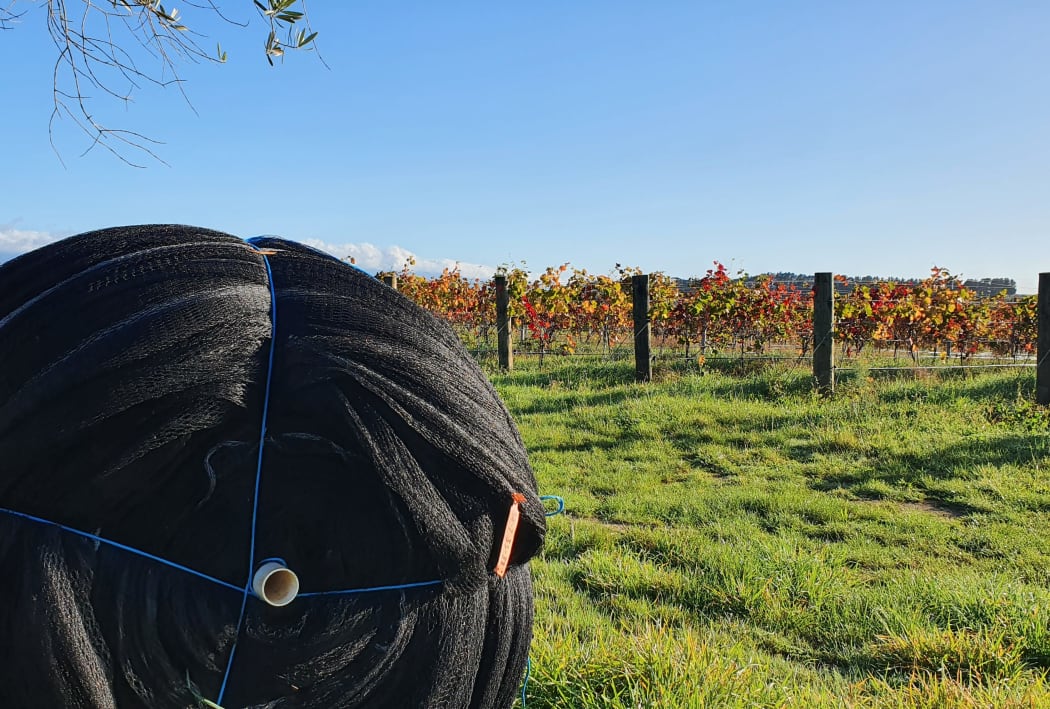
Nets are off and vines are changing colour as autumn arrives Photo: RNZ/Sally Round
Wairarapa is lush and green - so unusual for the time of year. Friday turned into sparkling sunshine after a nippy start and a few dreary days this week. The rams are out and are busy with the ewes.
Friday morning in Tasman was stunning, but with a cool morning temperature and a heavy dew, our orchardist contact says he can tell the end of summer's arrived. Later variety apples are now coming off trees. One of the bigger issues now with the shortage of labour is that packhouses aren't keeping up with packing, and they're running out of bins and storage facilities to hold apples while they're waiting to be packed. Growers are clinging on hoping things just keep trickling along. Feijoas are being picked, they're into the mid season varieties and there's good demand on the local market ... the season's running 10 to 14 days early.
The Marlborough farmer we caught up with had Covid. He's been laid low since Monday, having caught it from one of his children who'd been rowing in the Maadi Cup ... the whole eight crew members got it, closely followed by coaches and parents. He can't believe how much it's knocked him around. Out on the farm which is near Blenheim, the ram's been out for a month and now into the second cycle. Calves have been weaned and for farmers selling them the prices have been good. Vineyards that have finished harvesting are welcoming hoggets and ewes in to eat the grass.
With great relief the West Coast welcomed about 50mm of rain this week. The prolonged dry spell was becoming a real issue and farmers hope now for some growth, but being the first week of April it's a matter of waiting and seeing if that happens. The meat works space is still tight so holding onto cull cows for too long won't be good. Basically the coast is tight for tucker.
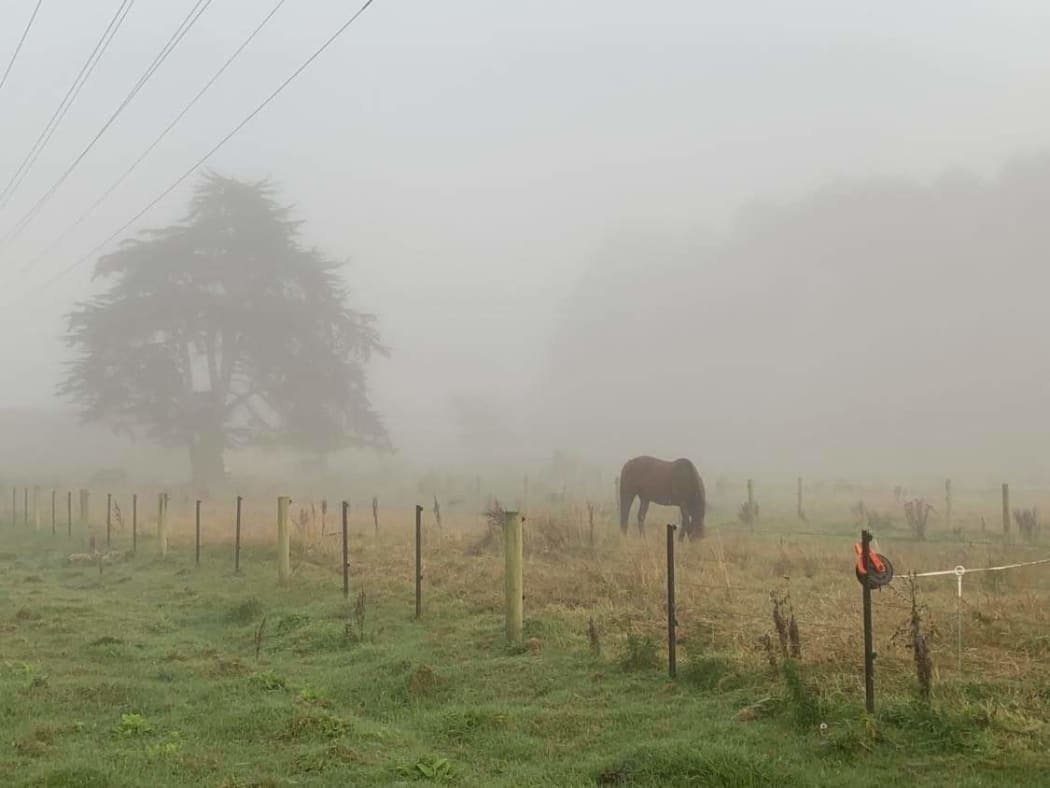
Photo: Michael Godfrey
With late autumn conditions kicking in, Canterbury farmers are busy feeding out as pasture growth drops off. Dryland farmers have had a fantastic summer and autumn in the region and many are purchasing store lambs as they have excess feed, this is taking the pressure off Southland counterparts who are battling with dry conditions and little feed. Arable farmers still have some late crops to harvest and are busy planting next seasons crops.
The dream run is continuing for Central Otago wine makers ... there's outstanding fruit still being harvested, yields have been good and disease low. Although Covid is starting to bite around Cromwell just now and vineyard managers are finding staff suddenly unable to work. One had 10 people needing to isolate at the same time ... rather a dent in the labour pool. It's the third Covid harvest and fair to say everyone's over it. There are two more weeks of pressure to get through and it's touch and go if the dream run will continue, or Covid will get a final fling.
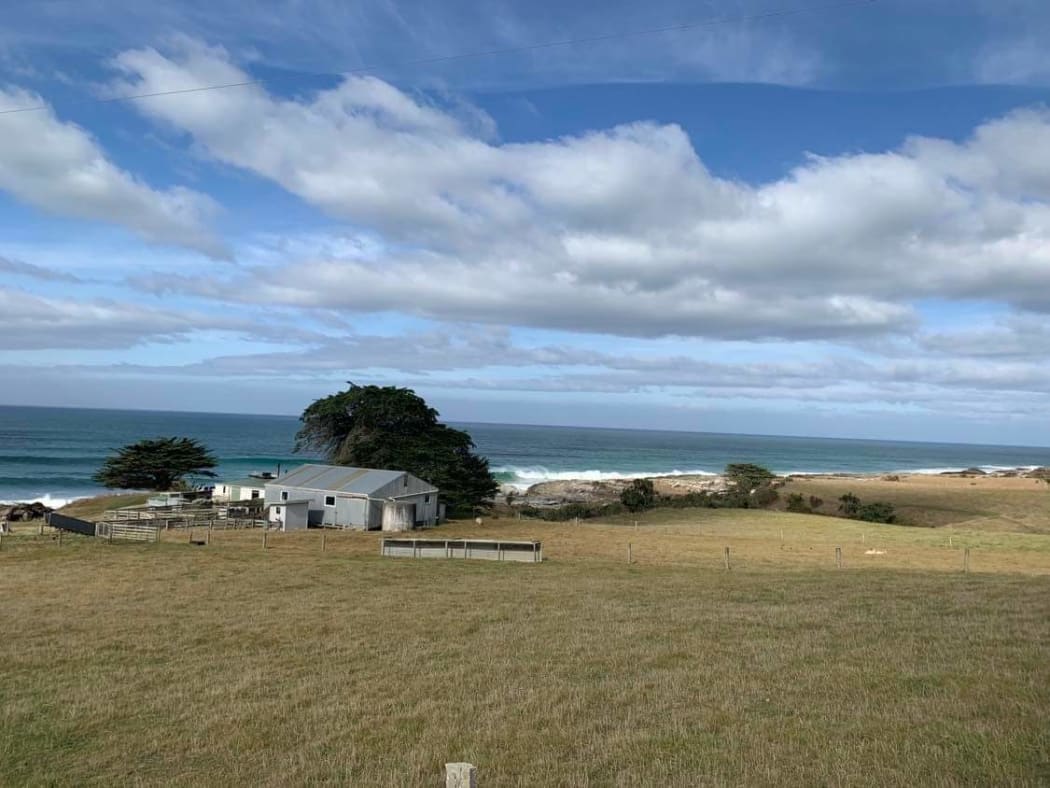
Photo: Michael Godfrey
Some Southland dairy farmers are drying their herds off well over a month early because of the extreme dry. A few millimetres of moisture fell this week, but that's not enough to change the impact of the crippling drought. The government has already offered $100,000 in support with the declaration of a medium-scale adverse event, and on Thursday this week the Minister of Agriculture visited the region and said the government will be making announcements in the coming days about what it will do to boost staffing in freezing works. Farmers have had to hold onto more stock for much longer than normal because of the lack of killing space.

